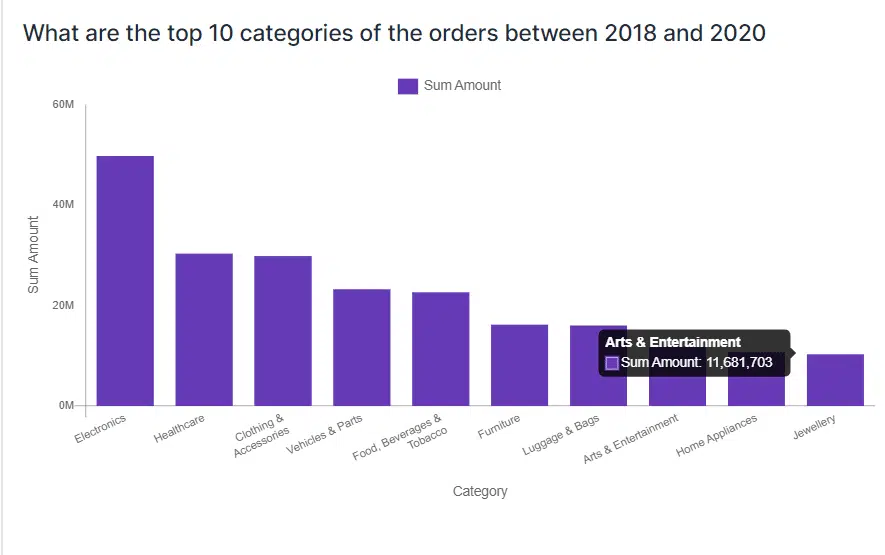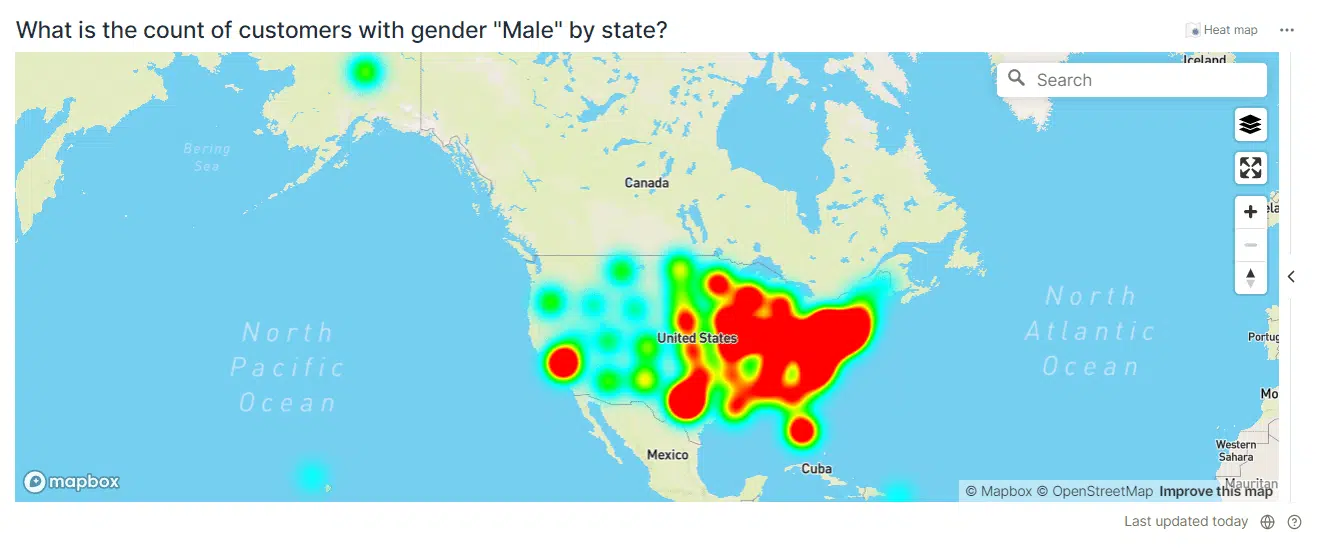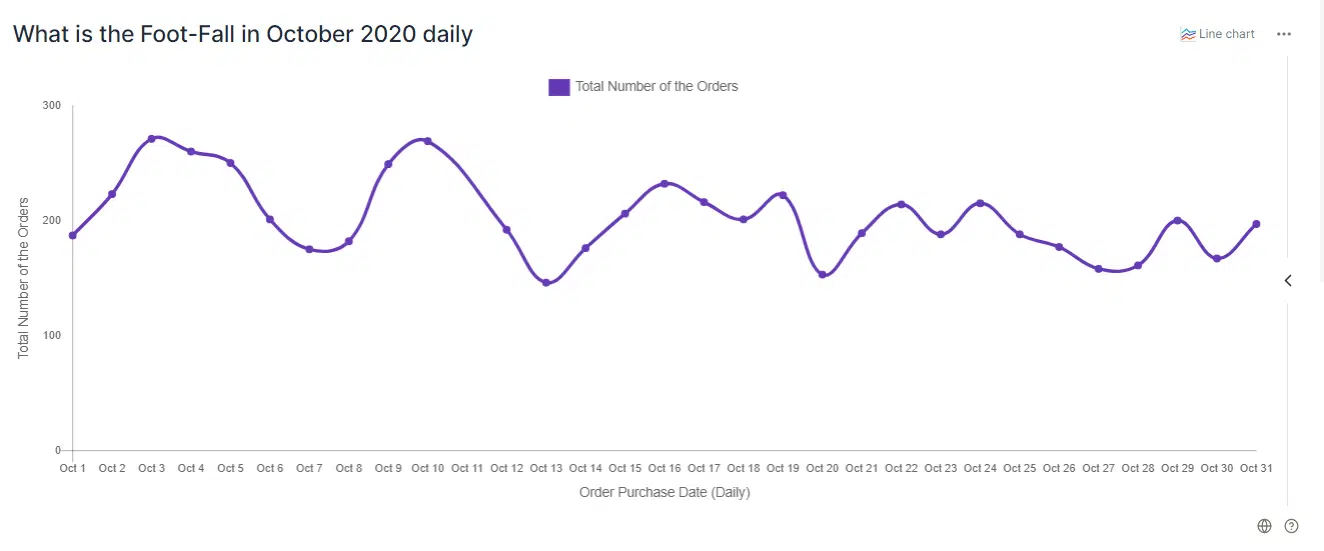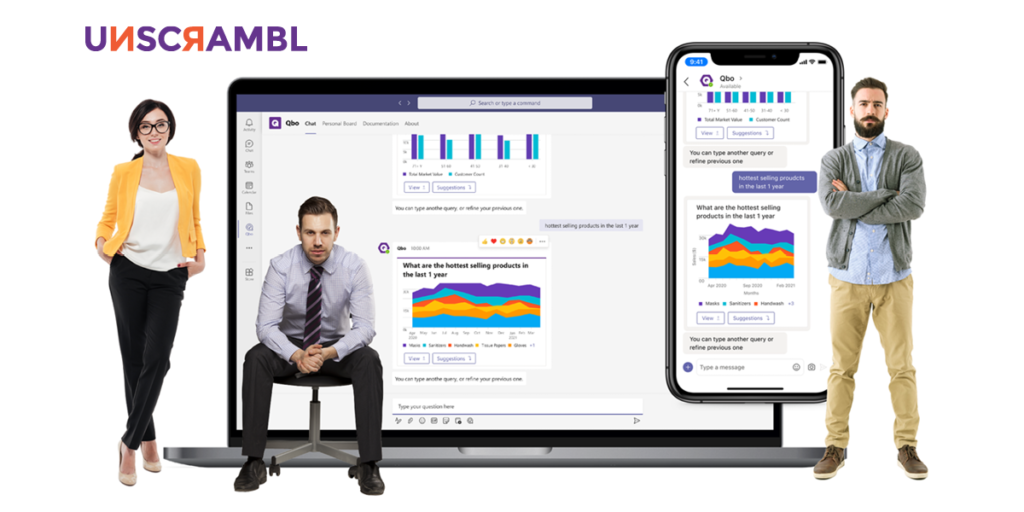 7 Minutes
7 Minutes

10 Key Benefits of Business Intelligence (Every Organization Needs It)
Business is getting ever more competitive and the key to staying ahead is making smarter decisions that will steer the company forward in the right direction.
Thankfully, companies today are sitting on a treasure trove of information that can be utilized through business intelligence to transform data into insights. This allows decision-makers to take faster action with confidence.
What is Business Intelligence & Why it is so Important?
Business intelligence is a set of processes and solutions that transform an organization’s data into actionable insights – information that can be used to improve business operations, performance, and strategies.
These insights are presented to users in formats such as visualizations to allow users to quickly comprehend the information to effectively make data-driven decisions.
In the past, the term ‘business intelligence’ was simply valuable information that was unavailable to competitors – data generated from a business’s own operations.
While this still holds true today, organizations are getting more complex and the amounts of data being generated are fast becoming too overwhelming for quick and accurate interpretation manually.
Modern business intelligence demands that all these data have to be effectively mined, processed and analysed swiftly for better decision making
Every Business Today can now Utilize Business Intelligence
In the past, leveraging available data was restricted only to big businesses with the resources and capabilities to hire specialists to process the information.
From helping big telecom companies maximise their revenue opportunities to helping digital insurers outpace market growth, business intelligence is helping organizations make better business decisions.
Fortunately, with new advances such as AI-powered conversational analytics – actionable insights can now be obtained by simply asking questions, allowing businesses of all sizes to benefit and accelerate their growth with better decision making.
Let’s dive deep into the reasons why your organization requires business intelligence, from reducing your costs to delighting customers consistently!
10 Key Benefits of Business Intelligence to get Started Today
1. Data-Driven Decision Making
In today’s fast-moving business environment, making quick decisions is key to capitalize on opportunities.
However, without actionable insights that are specific to a particular challenge you are trying to solve, there will be an element of guesswork and chance that goes into your decision making.
Business intelligence allows you to gain valuable insights into the operations of your business, customized to your immediate needs.
Need to understand which products and services to focus on & spend your marketing budget on for the next financial year?
You can simply ask hyper-specific questions such as “Which products are the top bestsellers from 2018 to 2020?”
Business intelligence will deliver on-demand insights from your datasets presented in user-friendly visualizations that you can immediately gleam value from and use it to make data-driven decisions.
No more guessing games.
2. Improved Organizational Collaboration
One of the biggest challenges business leaders face is putting together the right pieces of information together to gain a holistic view of the company’s operations – and it only gets harder the bigger the organization grows.
With each department generating their own data and having their own standard operating procedures (SOPs), this causes organizational inefficiencies where more hours of data analysis and consolidation will have to be done.
With business intelligence, leaders will be able to piece together information across the entire organization and identify collaboration opportunities.
For example, in hospitals, the finance department can quickly check how medical inventory is being used, misused or if any overstocking is happening in order to better manage cost.
This can be done by asking inter-connected questions such as:
“What is the consumption rate of our medical gloves and masks over the last 9 months?”
“How long do the medical gloves and masks stay in our warehouse?”
“What is the cost and order frequency of our medical masks?”
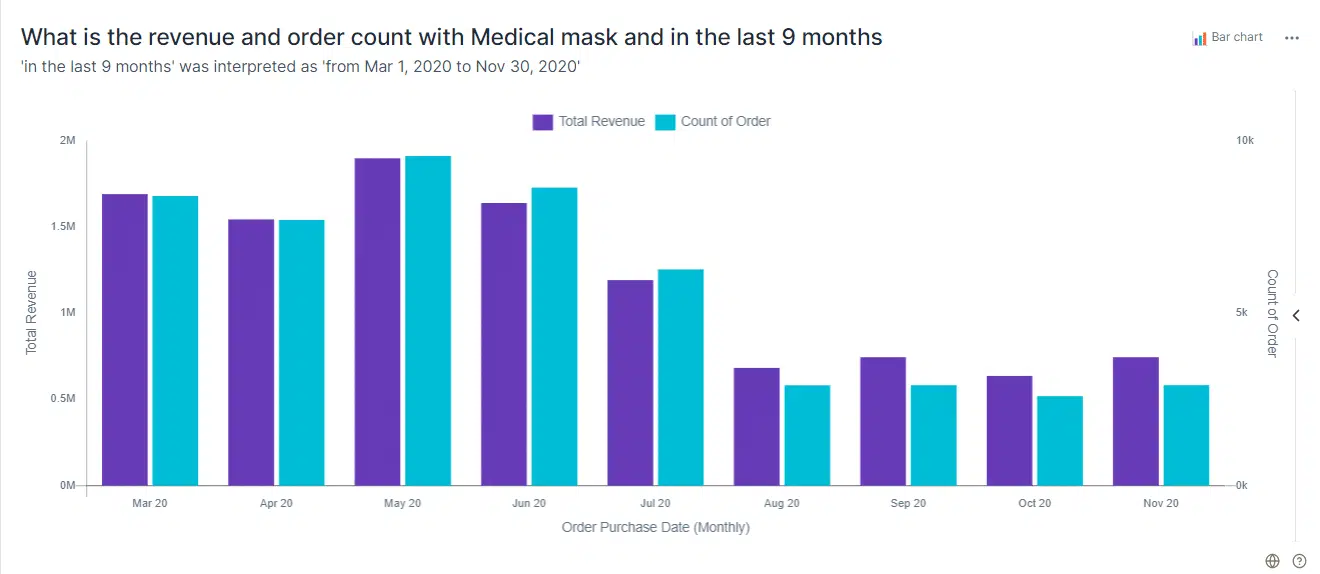
3. Less Reliance on the IT Department
IT departments are notoriously over-worked and are approached by managers across the organization to retrieve data and analyze them for insights.
While this might be fine to start off with, it quickly runs into delays and inaccuracies as an organization’s data needs (and data generation) grows.
A simple request for data-mining and analysis could take days if not weeks to be completed.
This is especially so when the data has to be compiled, digested, and interpreted by business & data analysts in order for any meaningful insight to be delivered.
With business intelligence, organizations can get insights on-demand in a way that is easy to understand and customized to the leader’s needs and preferences.
Additionally, it will reduce the stress and demands on IT departments which can be allocated to solve other challenges that might arise in the business.
4. Critical Insights on Demand
In many instances, there is a need to quickly gather insights on your organization’s data.
This can be during an executive board meeting with key stakeholders or a frontline manager looking to solve a customer complaint in real-time.
During time-sensitive scenarios, there isn’t any time to analyze and process data, especially when a complex question needs to be answered – you need insights immediately.
With business intelligence, companies and their executives can access accurate insights that are reported to them on-demand when they need it. And in many instances, within minutes or even seconds!
5. Staying Competitive & on Top of KPIs
One advantage of a powerful business intelligence solution is the ability to deliver valuable insights consistently where the need arises – going beyond the standard dashboard reporting.
With artificial intelligence today, business leaders can be alerted automatically when something important happens in their business operations.
It could be:
- Discovering a potential market trend from a sudden sales increase
- A critical KPI that is under-performing over the last quarter
- An increase in complaints that might highlight customer service issues
With business intelligence, organizations will not only be able to actively take control of their data for better insights, but they will also be able to pre-emptively spot potential issues and solve them before the situation snowballs out of control.
6. Enhanced Customer Support & Satisfaction
One of the key areas business intelligence shines is in the areas of delighting your current customers and getting them consistently satisfied with your brand and service.
An immediate application is in customer feedback.
Business intelligence allows your organization to analyze hundreds and thousands of feedback in real-time and presented in visualizations that can be easily understood.
This helps your staff and business managers to anticipate your customers’ needs to identify areas of improvement that are causing problems.
From retail stores to airport ground operations, business intelligence helps brands better connect with their customers’ needs in a way that is data-driven.
7. Highly Personalized Marketing
While you might be selling a fixed range of products or services, you are probably marketing to a diverse group of customers, each with their own unique preferences and needs.
Business intelligence allows you to immediately zoom into the needs of your different customer groups and steer the conversation in the right direction with them.
One direct application is helping your marketing department develop more hyper-specific digital marketing campaigns.
From targeting specific keywords on Google and audience groupings on Facebook to crafting personalized landing pages, business intelligence allows you to better market and sell to prospects that already resemble your paying customers.
This allows you to lower your cost of acquisition and increase profits.
8. Spotting & Capitalizing on Market Trends
Do you really know what is going on within your business operations?
Within the data of many companies are trends that are building that can represent business opportunities to capitalize on.
This can be higher sales growth in one particular product range or the rapid growth of user acquisition from a specific country or region or which gender is purchasing more from the stores.
With business intelligence, these trends can be identified by simply asking key questions such as:
“Which product is selling the fastest over the last 12 months?”
“Which of our stores are driving the most revenue and profit to the business?”
“What is the count of Male customers by state?”
In addition, your business analyst teams can also leverage external data and cross-check it with your internal insights to uncover new market trends where you can start to direct your focus to.
9. Maximize Revenue Opportunities
At the end of the day, increasing revenue is a must for any business looking to grow.
Business intelligence allows companies to analyze data across the organization to identify key areas in their operations that require optimization.
One great example is that of inventory management.
Business intelligence allows leaders to identify areas in the business where products are being sold faster than they are being restocked over a period of time.
This insight allows for greater optimization of the company’s procurement process for a more efficient purchase of goods.
10. Lower Cost & Improve Operating Margins
Every organization has inefficiencies and with the mountain of data being generated daily, opportunities to improve get buried and forgotten. As a result, the cost keeps increasing.
Thankfully, with business intelligence, resources from various teams can be expertly reallocated to maximize not just capital and money but employee productivity as well.
One example is in the retail sector where managers can ask questions such as:
“Which stores have the longest customer wait time over the last 6 months?”
“What was the footfall in oct 2020 of ABZ outlet?”
“Which outlets have the least foot traffic after 10 pm?”
Store managers will be able to look at the footfall graph generated and immediately understand which outlets need more attention or resources (such as marketing promotions) to improve their operational performance.
Business intelligence allows companies across a variety of industries to glean insight into the daily operations, from brick and mortar establishments in a region to teams working virtually around the world.
Capitalize on Business Intelligence with Qbo
While business intelligence is key to advance your organization, many traditional tools and dashboards require a steep learning curve to get started and do not effectively help businesses draw actionable conclusions.
With Qbo, any business, big or small, can immediately tap into their own data and gain valuable insights by simply asking questions like how you would in a conversation.
Embark on a free 14-days trial and see for yourselves how easy and effective business intelligence can be.


